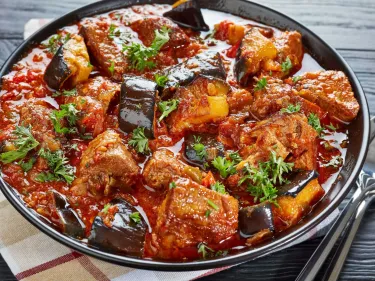Protein powders are the most common nutrition supplements used. They are popular with athletes and frequently used by people wishing to alter body composition, particularly those wanting to build muscle mass.
What is protein?
Protein is a macronutrient. This means it is a major nutrient that provides a source of energy, which is measured in kilojoules. However, the most important role of protein is to help build and repair body issues, especially muscle. Protein is also essential for the production of important hormones and enzymes and protein molecules in the blood help maintain fluid balance.
Protein is made up of chains of molecules called amino acids. Humans need 21 amino acids for proper growth and functioning. Nine of these amino acids are classified as ‘essential’ meaning that the body cannot produce them and they need to be obtained from food.
Foods that contain protein include:
- Meat i.e. chicken, beef, lamb, pork
- Seafood
- Eggs
- Legumes i.e. chickpeas, beans and lentils
- Nuts and seeds
- Dairy i.e. milk, cheese and yoghurt
What are protein supplements?
Protein supplements can come in many forms, including powders, premade shakes and bars. Increasingly, packaged foods are also being fortified with protein, At the supermarket, everything from yoghurts, to muesli bars, flavoured milks and breakfast cereal might claim to be high in protein. Protein powders can come with instructions to mix them into a shakes or added to any part of a meal or snack of your choosing.
However, not all protein powders are created equal! Most protein powders are made from dairy protein. The two main proteins in dairy are casein and whey (remember curds and whey!?). The difference in regard to protein supplementation is in digestion and absorption. Whey protein is more biologically available and therefore digested and absorbed more rapidly, making it a preferred choice for use. It is also easy to manufacture and produce, as it is a waste product from cheese production.
But, there are also differences between whey proteins. Whey protein concentrate contains between 30-80% protein depending on the product. This means it has a high content of fat, lactose, and energy.Whey protein isolate has >90% protein with <10% fat and lactose, making it a purer and lower energy choice.
Pros
- Protein supplements can be a convenient way to include protein in your diet if you struggle to meet your requirements through food alone. For example, people who are vegetarian or vegan, or athletes such as bodybuilders who have increased protein requirements.
- Protein supplements can be convenient if you have a tight schedule, for example, heading straight to work from the gym, or for after a workout where you may not feel like consuming a meal.
- May be a convenient way to supplement a meal that otherwise would be low in protein.
Cons
- Protein supplements only contain protein, whereas food sources of protein (such as meat, fish and nuts) are rich sources of protein and can contains other nutrients such as omega-3 fatty acids, iron, folate, zinc, magnesium, calcium and fibre.
- Given the lack of other nutrients in protein supplements, there is no additional benefit to consuming protein supplements instead of food.
- Depending on which products you purchase, protein supplements can be lot more expensive than food sources of protein.
The bottom line
Protein supplements can be useful for some individuals in specific situations who may otherwise struggle to meet their protein requirements. However, for most people eating a healthy diet will provide adequate amounts of protein. If you are concerned about your protein intake or feel as though you may require supplementation, it is best to speak to an Accredited Practising Dietitian to assess your individual needs and requirements.













